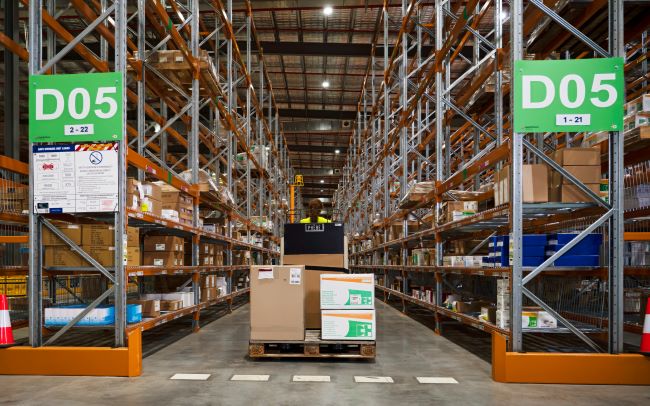28 August 2025
HSV takes cross-jurisdictional approach to improve understanding of modern slavery risk

HSV is engaging with federal and state representatives to gain a better understanding of modern slavery risk in health supply chains.
The team recently met with the inaugural Australian Anti-Slavery Commissioner Chris Evans. The Commissioner, who was appointed last November, will focus on strengthening Australia's response to modern slavery, particularly in supply chains.
They discussed the work that HSV is doing to support businesses that supply goods and services to the Victorian health sector.
Earlier this month in response to legal proceedings taken by the Australian Uyghur Tangritagh Women's Association, the Commissioner spoke about the risk of forced labour in Australian supply chains.
“Many global supply chains are complex and opaque, making it difficult to trace the origins of raw materials and validate supplier claims. Australian businesses must do more to understand their supply chains and take action to address known risks," he said.
"The Australian Government must also do more to support them. We need better public access to information and data about which products are high risk, what products are entering Australia, and who is importing them," he said.
Since the legislation was introduced, HSV has moved to a more centralised approach to addressing modern slavery risk in the health sector supply chain to alleviate some of the burden on health services.
The HSV modern slavery team continues to provide education on modern slavery risk in health supply chains, delivering online training to more than 1,200 suppliers to the public health sector since 2023.
Health supply chains are considered high risk and Australia's health spending as a proportion of GDP is 10 per cent, the 15th highest among OECD countries.
“Some of our suppliers attend our training three or four times for a refresher,” says HSV Chief Financial Officer, John Delinaoum. “There’s very little information available that’s accessible and they value what we provide.”
In 2018, Australia was the second country in the world to introduce national laws to tackle modern slavery.
Under the Modern Slavery Act, health services with an annual consolidated revenue of AU$100 million are required to submit an annual Modern Slavery Statement to the Australian Government.
In addition, under HSV’s purchasing policies, suppliers of goods and services to the public health sector are required to declare they are compliant with the Victorian Government’s Supplier Code of Conduct, which includes a commitment to reduce modern slavery risk.
HSV’s Modern Slavery Risk team continues to support health services and suppliers with their response to modern slavery risk, including improving clinicians’ understanding of modern slavery.
“The data tells us that 68 per cent of individuals living in modern slavery receive care from a health care provider,” says John.
“Healthcare professionals are on the frontline and often in the best position to identify people who have experienced modern slavery. This is a complex area and HSV will continue to work with health services and our state and federal counterparts to develop resources to educate clinicians on modern slavery,” he says.
Modern slavery applies to human trafficking, forced labour, servitude, debt bondage, forced marriage, deceptive recruitment and the worst forms of child labour.
The Global Slavery Index 2023 estimated that there were 50 million people around the world living in modern slavery on any given day, with 41,000 living in Australia.